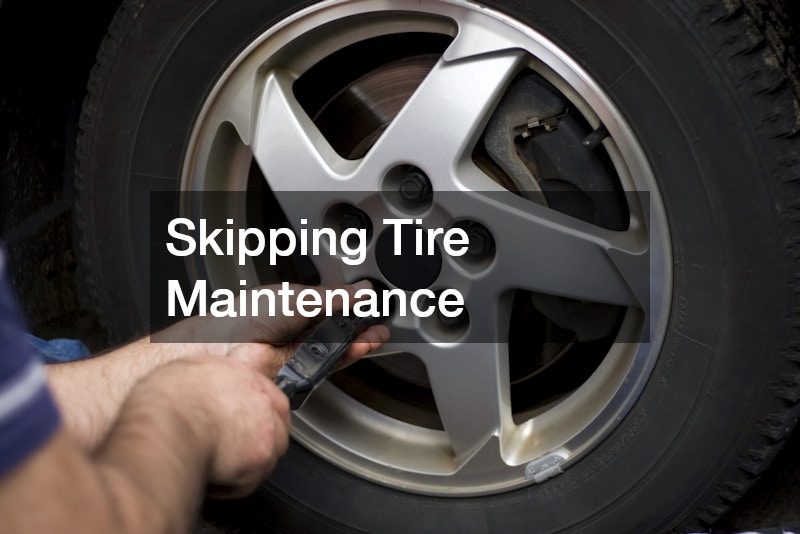Many Australians find that owning a vehicle is an essential part of their daily lives, offering convenience and freedom. However, with ownership comes the responsibility of maintaining the vehicle to ensure it is safe and in optimal condition. While most car owners are aware of the importance of regular vehicle maintenance, some common mistakes can lead to costly repairs, decreased performance, or even unsafe driving conditions.
This article will discuss the top ten car maintenance mistakes and explain why they should be avoided to ensure a safe and smooth ride.
1. Avoiding Regular Oil Changes
Oil changes are a critical part of vehicle maintenance. Oil lubricates engine components, reduces friction, and prevents overheating. Over time, oil can lose its effectiveness as it becomes contaminated with dirt, metal shavings, and other debris. Ignoring oil changes can lead to these contaminants building up, which can compromise engine performance and cause serious damage.
Why It’s Important:
Regular oil changes ensure that your engine runs smoothly, reducing friction and preventing overheating. Neglecting this essential maintenance could lead to increased engine wear, excessive heating, or, in the worst-case scenario, a seized engine. Most car manufacturers recommend oil changes every 5,000 to 10,000 km. However, always consult your owner’s manual for more specific information depending on your car model.
The Consequences of Ignoring Oil Changes:
- Engine damage caused by poor lubrication
- Reduced engine lifespan
- Increased fuel consumption
- Expensive repairs
2. Skipping Tire Maintenance

Tires are the only part of your vehicle that make direct contact with the road, making their maintenance crucial for safety and performance. Many car owners neglect proper tire care, including checking tire pressure, rotating tires, and balancing them. Poorly maintained tires can affect handling, fuel efficiency, and, more importantly, can lead to dangerous blowouts.
Why Regular Tire Maintenance is Important:
- Tire Pressure: Under-inflated tyres create more rolling resistance, which increases wear and reduces fuel economy. Over-inflated tyres can make your vehicle handle poorly and increase the risk of a blowout.
- Tire Rotation: Rotating your tyres regularly ensures even wear and maximises their lifespan. Uneven tyre wear can compromise handling and safety.
- Tire Balancing: Unbalanced tyres can cause vibrations, leading to faster wear on suspension components.
How to Maintain Your Tires:
- Check tire pressure at least once a month.
- Rotate tyres every 10,000–13,000 km.
- Inspect tyres for cracks or worn-out tread.
- Ensure your tyres are properly balanced.
3. Avoiding Brake Inspections
The brake system is one of the most vital safety features of your car, yet it is often overlooked. Brake failures due to worn brake pads, low fluid levels, or damaged components can greatly increase the risk of accidents.
Why Brake Inspections Are Important:
- Worn Brake Pads: Worn-out brake pads lose their effectiveness in stopping your vehicle. Failing to replace them can lead to further damage to the braking system.
- Brake Fluid Level: Low brake fluid levels can cause poor braking performance, especially under heavy braking conditions, such as when driving downhill or in stop-and-go traffic.
- Brake Line Problems: Leaks or cracks in brake lines can lead to brake failure, which poses a serious safety hazard.
How to Maintain Your Brakes:
- Have your brakes inspected every 16,000 km or according to the manufacturer’s recommendations.
- Listen for unusual noises such as squeaking or grinding when applying the brakes—this may indicate worn pads.
- Replace brake fluid every 2–3 years, or as recommended by your vehicle’s manufacturer.
4. Neglecting Battery Maintenance
Your car’s battery is responsible for starting the engine, powering electrical components such as lights and air conditioning, and operating electronic systems. Batteries typically last between 3–5 years, but they can degrade faster if not properly maintained. Failing to check your battery or clean the terminals can result in unexpected breakdowns and costly repairs.
Why Battery Care is Important:
- Battery Life: Regularly checking your battery ensures it remains charged and functioning properly. Corroded terminals or a weak battery can prevent your car from starting, particularly during cold weather.
- Electrical Issues: A faulty battery can affect your vehicle’s electrical systems, such as lights, infotainment, and safety features like airbags.
How to Maintain Your Car Battery:
- Clean battery terminals to prevent corrosion.
- Replace the battery every 3–5 years.
- Ensure your alternator is working properly to maintain battery charge.
- Inspect cables for signs of damage or wear.
5. Skipping Fluid Checks and Changes
For optimal vehicle performance, it’s essential to regularly check and replace your car’s fluids. This includes engine oil, transmission fluid, brake fluid, coolant, and power steering fluid. Regularly changing these fluids ensures that your car operates smoothly and prevents costly damage to vital components.
Types of Fluids That Need Regular Checks:
- Engine Oil: Oil lubricates your engine and must be replaced regularly to avoid overheating and engine wear.
- Transmission Fluid: Essential for smooth transmission operation. Low or dirty transmission fluid can lead to transmission failure, which is costly to repair.
- Brake Fluid: Low brake fluid can reduce braking performance and compromise safety.
Fluid Check Schedule:
- Check fluid levels with every oil change or every 5,000 km.
- Replace transmission fluid every 48,000–96,000 km.
- Flush the cooling system every 2–3 years, or as recommended by the manufacturer.
6. Delaying Timing Belt and Chain Replacements

Timing belts and chains are responsible for ensuring that engine components such as the crankshaft and camshaft are properly synchronised. Over time, these components can wear out, leading to timing issues. A broken timing belt or chain can result in catastrophic engine damage, resulting in costly repairs.
Why Timely Replacements Are Important:
- Avoid Catastrophic Engine Damage: A broken timing belt or chain can severely damage internal engine components, often resulting in extensive repairs.
- Ensure Proper Engine Timing: The timing belt or chain keeps the pistons and valves moving in sync. Failing to replace the timing belt or chain at the recommended intervals can lead to engine misfires, stalling, or complete failure.
Replacement Schedule:
- Replace the timing belt every 96,000–160,000 km.
- Timing chains are designed to last longer, but should still be checked periodically.
- Consult your technician if unsure about the condition of your timing belt or chain.
7. Forgetting to Check Wiper Blades and Windshield Fluid
Wiper blades and windshield fluid are crucial for maintaining visibility in all weather conditions. Wiper blades wear out over time and may become ineffective, leaving streaks on the glass that can reduce visibility.
Why It’s Important:
- Clear Visibility: Worn wiper blades can leave streaks on your windshield, which can obstruct your view and increase the risk of accidents.
- Effective Cleaning: A functional windshield washer system helps keep your visibility clear by removing dirt and grime. Running out of washer fluid can make it difficult to clean your windshield during adverse weather.
Wiper Blades and Fluid Maintenance:
- Replace wiper blades every 6–12 months.
- Refill windshield washer fluid regularly, especially during the rainy season.
- Inspect wiper blades for wear, cracks, or stiffness.
8. Delaying Suspension System Inspections
The suspension system is responsible for ensuring a smooth ride and proper vehicle handling. Neglecting your suspension system can lead to poor handling, uneven tire wear, and even damage to the chassis. Regular inspections are vital to maintaining a healthy suspension system.
The Importance of Suspension Maintenance:
- Safety: A malfunctioning suspension system can make it difficult to control your vehicle, especially when driving on rough roads or turning.
- Comfort: A well-maintained suspension absorbs shocks and ensures a more comfortable ride.
Suspension System Inspection Tips:
- Inspect your suspension every 32,000 km or during routine maintenance.
- Listen for strange sounds such as squeaks or clunks when driving.
- Uneven tyre wear can be a sign of suspension issues.
9. Skipping Regular Exhaust System Checks
The exhaust system reduces emissions and ensures your vehicle runs smoothly. A well-maintained exhaust system reduces engine noise and prevents toxic fumes from entering the cabin. Ignoring exhaust system checks can lead to expensive repairs and hazardous driving conditions.
Why Exhaust System Maintenance is Important:
- Emission Control: A functioning exhaust system helps reduce harmful gases such as nitrogen oxides and hydrocarbons.
- Noise Reduction: The muffler in your exhaust system reduces engine noise. A damaged muffler can result in loud, unpleasant noise.
- Fuel Efficiency: A clogged or damaged exhaust system can reduce engine performance and fuel efficiency.
Consequences of Skipping Exhaust Checks:
- Health Risks: A leak in the exhaust can allow carbon monoxide into the cabin, which is a serious health hazard.
- Increased Fuel Consumption: Exhaust system issues can reduce fuel efficiency, making your vehicle consume more fuel than necessary.
- Expensive Repairs: Ignoring exhaust problems can result in costly repairs if the issue worsens.
How to Maintain Your Exhaust System:
- Regularly inspect the exhaust system for corrosion or damage.
- Listen for unusual noises such as loud rumbling or popping.
- Replace damaged mufflers or exhaust pipes to maintain optimal vehicle performance.
10. Avoiding Small Scratches and Dents
Small scratches and dents may seem like minor cosmetic issues, but neglecting them can lead to more serious problems over time. Unattended dents and scratches can lower your car’s value and compromise its appearance. It’s important to address these issues early to prevent them from escalating.
Why It’s Important to Fix Small Scratches and Dents:
- Prevent Rust: Left untreated, scratches and dents can expose the metal beneath your car’s paint, which can lead to rust. Rust spreads quickly, causing structural damage to your vehicle.
- Maintain Appearance: Even minor visible damage can make your car look poorly maintained and decrease its resale value.
How to Remove Scratches and Dents:
- DIY Repairs: Use touch-up paint for small scratches to prevent rusting. Paintless dent repair kits can be used for minor dents.
- Professional Help: Consult a professional for larger dents and scratches to avoid further damage to your vehicle’s finish.
- Regular Inspections: Check your vehicle for small imperfections and fix them promptly to maintain its appearance.
Conclusion
Maintaining your car isn’t just about ensuring it runs—it’s about ensuring safety, reliability, and longevity. By avoiding these ten common car maintenance mistakes, you can enjoy a smoother ride and reduce the risk of expensive repairs. Regular maintenance is a worthwhile investment that helps prevent breakdowns and enhances your vehicle’s performance. Stay on top of your car’s maintenance and enjoy a safer, more reliable ride for years to come.



